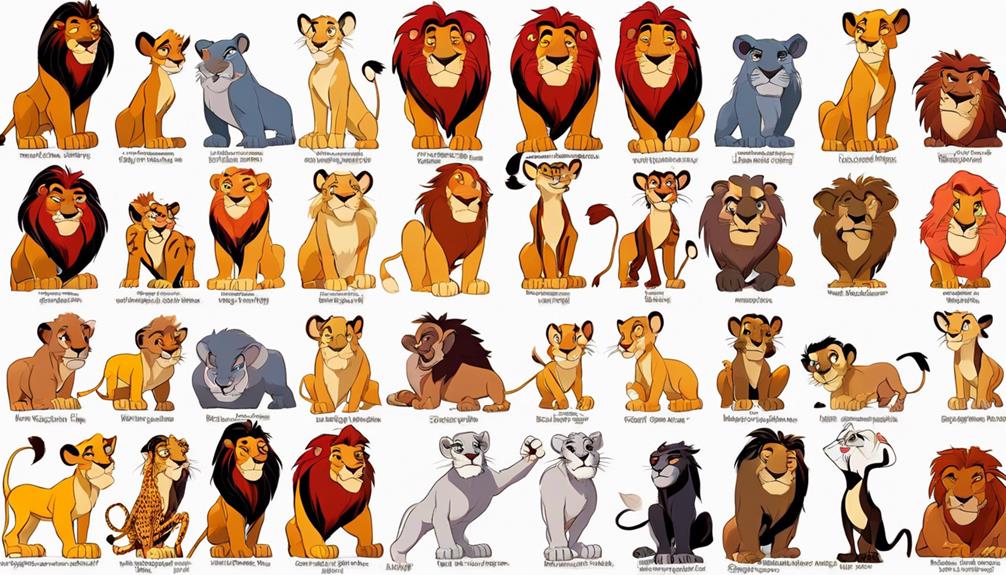When exploring male societal roles, the age-old expression ‘different strokes for different folks’ is particularly relevant when comparing Alpha and Beta males. While these labels may oversimplify the complexities of human behavior, they provide insight into the diverse approaches men take in handling social interactions and relationships.
Understanding the nuances between Alpha and Beta roles can shed light on the intricacies of masculinity and offer valuable insights into how individuals perceive and embody these archetypes in various contexts.
Key Takeaways
- Alphas prioritize dominance and assertiveness, while Betas value empathy and relationships.
- Leadership roles are often assumed by Alphas seeking dominance, while Betas promote harmony and cooperation.
- Understanding the differences between Alpha and Beta males is essential for effective social interactions.
- Recognizing and appreciating the strengths of both Alpha and Beta males enhances inclusivity and diversity in society.
Key Differentiating Characteristics
Analyzing the key differentiating characteristics between Alpha and Beta males reveals fundamental distinctions in leadership styles and social behaviors. Alphas are known for their assertiveness, seeking dominance in social hierarchies through their competitive nature. They exhibit confidence and charisma, traits that help them excel in leadership roles where decisiveness and strategic thinking are essential.
On the other hand, Beta males prioritize building supportive relationships and are characterized by their empathy towards others. Their focus on harmony and cooperation highlights their ability to excel in roles that require emotional support and understanding.
Understanding these contrasting personality traits is crucial in comprehending the dynamics of male social roles. While Alphas emphasize dominance and success, Betas value empathy and communication. This comprehension allows for a more nuanced view of leadership and social interactions, acknowledging that different individuals may possess varying strengths that contribute to the overall functioning of a group or community.
Impact on Social Hierarchies

The interplay between Alpha and Beta males within social hierarchies significantly shapes the dynamics and balance of group interactions. Understanding the impact of male social roles on social hierarchies sheds light on the complexities of group dynamics and relationships. Key points to consider include:
- Alpha males, with their dominant nature, often assume leadership roles within social hierarchies, guiding decision-making processes and setting the tone for group interactions.
- Beta males, known for their supportive and empathetic traits, play a crucial role in fostering cooperation and maintaining harmonious relationships within the social hierarchy.
- The dynamic between alpha and beta males influences the overall balance of power and the distribution of responsibilities within the group structure.
- Traditional gender roles may influence the expectations placed on alpha and beta males within social hierarchies, shaping their behavior and interactions with others.
- Personality traits associated with alpha and beta males contribute to the overall functioning and stability of the social hierarchy, highlighting the importance of diversity in leadership styles.
Behavioral Variances in Males
In exploring male social roles within hierarchies, the distinct behavioral variances between Alpha and Beta males emerge as pivotal factors shaping group dynamics and interactions. Alpha males tend to exhibit dominant nature, displaying assertiveness and seeking leadership positions to assert their dominance within social settings.
On the other hand, Beta males possess unique qualities that prioritize building relationships and fostering collaboration. Beta males excel in teamwork by valuing empathy, cooperation, and harmony, contributing to a supportive environment within the group.
These male personality types, Alpha and Beta, showcase contrasting approaches to social roles, with Alpha males leaning towards dominance and assertiveness, while Beta males focus on building relationships and promoting a harmonious atmosphere. Understanding these behavioral variances is crucial in comprehending the dynamics of male social roles and interactions, shedding light on the diverse ways in which male behavior influences group dynamics.
Role in Personal Relationships

When it comes to personal relationships, Alphas typically lead with their dominant and assertive traits, setting the tone for interactions. This dynamic often contrasts with Betas, who prioritize harmony and emotional connection, emphasizing empathy and supportiveness. Alphas may find compromise challenging due to their inherent dominance, while Betas excel at adapting and compromising for the relationship's sake. Understanding these differences between Alphas and Betas can pave the way for more balanced and fulfilling relationships.
- Alphas showcase dominance and assertiveness in personal relationships.
- Betas prioritize harmony and emotional connection, emphasizing empathy and supportiveness.
- Alphas may struggle with compromise due to their dominant nature.
- Betas excel at compromise and are willing to adapt for the relationship.
- Recognizing the distinctions between Alphas and Betas can lead to more fulfilling and balanced relationships.
Societal Expectations and Norms
Pivoting from the discussion on personal relationships, societal expectations heavily influence the perception and valuation of male social roles, often conforming to traditional views that emphasize leadership qualities and dominance. This can result in alpha male traits being favored, while the valuable contributions of beta males are sometimes overlooked. To truly understand the differences in male social roles, it is essential to recognize that both alpha and beta males bring unique strengths to the table. Beta males, although not conforming to traditional societal expectations, excel in building strong, supportive relationships and can play a crucial role in fostering a more inclusive society. By appreciating and acknowledging these differences, society can move towards a more balanced and understanding stance on male social roles.
| Key Points | ||
|---|---|---|
| Alpha Male Traits | Valued in leadership roles and dominance | Often favored in societal expectations |
| Overlooked Contributions | Beta males excel in building relationships | Valuable contributions can be dismissed |
| Understanding Differences | Recognizing unique strengths of each role | Essential for an inclusive society |
Frequently Asked Questions
What Is the Difference Between Alpha and Beta Males?
When we compare alpha and beta males, we notice distinct social roles. Alphas are assertive leaders seeking dominance, while Betas prioritize harmony and cooperation.
Alphas display confidence and charisma, favoring success, while Betas excel in team environments, valuing collaboration. Understanding these differences enhances social dynamics and relationships, leading to more effective interactions.
These roles provide insight into male behavior and can influence group dynamics in various contexts.
What Is the Alpha Beta Social Structure?
The alpha-beta social structure is a hierarchical system where alpha males assert dominance as leaders, while beta males support and maintain group harmony.
This dynamic establishes social hierarchies and influences group dynamics. Understanding these roles aids in effective social interactions and navigating various situations.
What Is an Alpha Male in Social Situations?
In social situations, an alpha male embodies dominance, charisma, and confidence. They assert themselves, taking the lead to establish influence and command attention.
Excelling in competitive environments, they're driven by a desire for success and social dominance. Alpha males are natural leaders, standing out for their strong presence and leadership qualities.
Their assertiveness and ability to take charge make them influential figures within social groups.
What Does Alpha and Beta Mean in a Person?
Alpha and beta refer to distinct personality traits in individuals. Alphas typically embody dominance, assertiveness, and a desire for control, whereas betas exhibit empathy, cooperation, and a focus on relationships.
Understanding these distinctions can shed light on social dynamics and leadership styles. By recognizing alpha and beta characteristics, we can navigate interactions more effectively, fostering better communication and collaboration in various contexts.
– Do Introverts Have Different Social Roles Than Extroverts in Understanding Male Social Roles?
Introverts may have different social roles than extroverts. When it comes to understanding male social roles, introverts may not fit traditional expectations. Telling if introvert is mad can be more challenging due to their reserved nature. Extroverts are more vocal, making their emotions easier to read in social situations.
How Do Delta Males Compare to Alpha and Beta Males in Social Roles?
Delta males are typically more laid-back and less assertive than alpha males. They fall between alpha and beta males in social hierarchies. What is a delta male? They are often seen as peacemakers and mediators, able to navigate different groups with ease. They play an important role in maintaining social harmony.
Conclusion
In conclusion, while Alpha males may strive for dominance and success, it's often the Beta males who excel in nurturing relationships and fostering cooperation.
Ironically, society may value Alpha traits, but it's the Beta qualities that often lead to more fulfilling and harmonious interactions.
Understanding and appreciating the differences between Alpha and Beta males can lead to a more balanced and enriched social dynamic, where both archetypes play valuable roles in shaping our communities.








